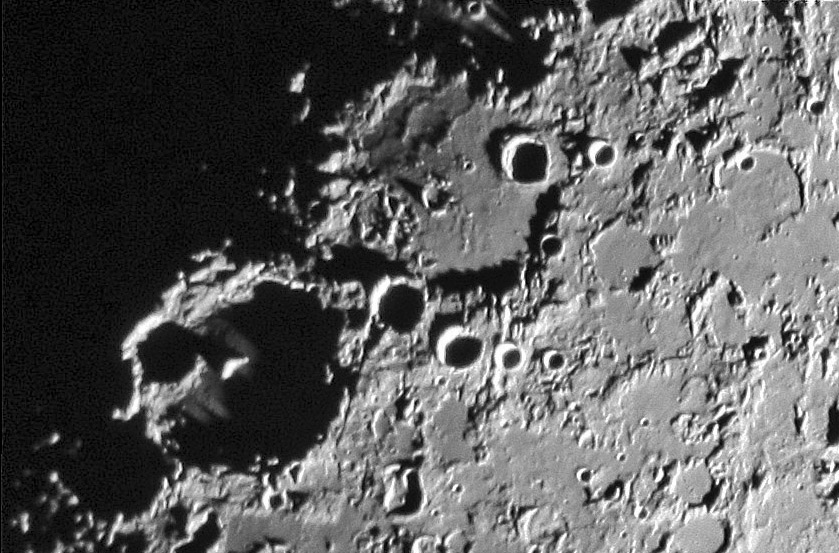September 16, 2023
Thrice Battered
Originally published September 1, 2013

north to upper right image by David Scanlan, Romsey, Hampshire, UK
Ever part of the Moon is unique, but some areas look more so than others. The section of the southern highlands between these two large craters, Hipparchus and Albategnius, and the Altai Scarp to the east is atypical of what we usually think the Moon looks like. The region, partially shown in the trianglar half of the image to the bottom right, has few well-formed craters but does include relatively flat materials that fill old battered craters and the spaces between craters. I suppose the flat areas are partly filled with Imbrium ejecta that was relatively fluid when deposited, allowing it to flow to fill low spots. This area should also have been devastated earlier by debris from the Nectaris and possible Tranquillitatis basins, accounting for the poor state of craters. Unfortunately for observers seeking trophy craters, none formed there.
Chuck Wood
Related Links
21st Century Atlas chart 12 & 13.
Yesterday's LPOD: Lonely Twins
Tomorrow's LPOD: Rillomania
COMMENTS?
Register, Log in, and join in the comments.



